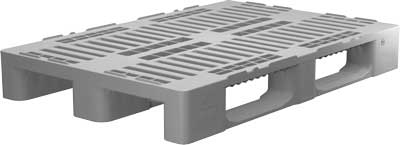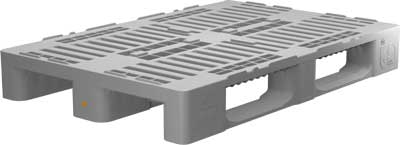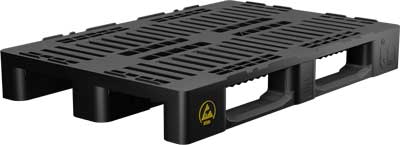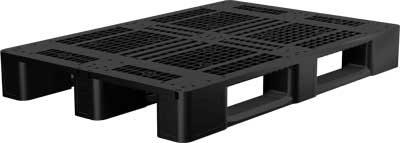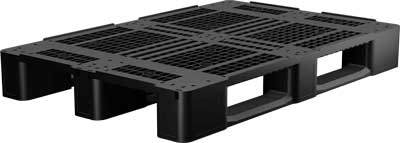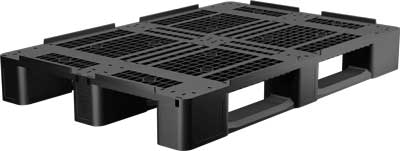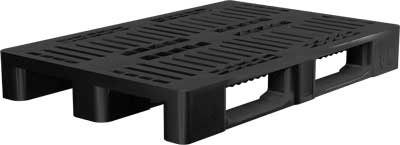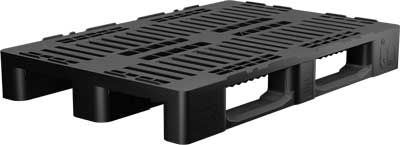Plastic Pallets Manufacturer
The Euro pallet was given its name with the introduction of the standardised exchangeable pallets made of wood by the International Railroad Association (UIC) in 1961. A Euro pallet has a size of 1,200 x 800 mm. There are differences in the design height and other properties of the exchangeable pallet made of wood.
Advantages for the Transport of Food and Pharmaceuticals
Plastic Euro pallets are an ideal alternative to traditional wooden pallets, especially in industries with high hygiene requirements such as the food and pharmaceutical sectors. Thanks to their lower weight and easy-to-clean surfaces, they are simple to maintain and reduce the risk of contamination, for example, through their closed runners. In high-bay warehouses, plastic pallets stand out due to their robust construction and ability to remain stable even under heavy loads. Their standardised dimensions and flexible customisation options allow for versatile use in various storage and logistics processes.
Construction and Customisation to Customer Requirements
Customers can tailor their plastic Euro pallets to their specific operational needs. Depending on the intended use, different designs for the deck and base, such as the runners, are available. Customisations can include the number of runners—sometimes referred to as feet—or the edge design to ensure maximum stability. The choice of material, such as recycled PE, also enables more environmentally friendly production. The load capacity and weight of the pallets can be individually adjusted to meet specific storage and transport requirements, providing a solution that is both efficient and sustainable.
FAQ
Frequently Asked Questions
If a plastic pallet measures 1200x800 millimetres, it is the most common type of Euro pallet in this country. This is also known as the Europool pallet and enables the handling of a large part of the trade within Europe. The base area of 0.96 m² and the 0.4 loading metres are clearly prescribed and are reflected in this form in the industry standard EN 13689-1. In contrast to the frequently encountered wooden versions, the plastic pallet is considerably lighter. The stability does not suffer from this and the designs are also varied. Plastic pallets are available both with and without anti-slip edges, and three unwelded skids are always integrated. In this way, Euro pallets can be transported perfectly with a pallet truck or forklift.
The term Euro pallet is a fixed term that is internationally established. In any case, it is a so-called four-way pallet, which refers to the fact that it can be gripped and transported from four sides. The European Pallet Association (EPAL) has approved 17 types of wood alone for the production of Euro pallets, although plastic is of course also suitable and has become particularly popular in combination with IBC containers or as a pooling pallet in the food industry. The "invention" of the Euro pallet dates back to the early 1960s. Initially, it was the Union of International Railways (UIC) that demanded a uniform system and created the Euro pallet in 1968. In Germany, the standard has been implemented since the 1970s and in the meantime the unit "Euro pallet" can also be found in lorries or railway wagons and in many other areas.
Unlike the wooden alternative, a 1200x800 plastic pallet hardly weighs anything. Depending on the moisture content of the wood used, the Euro pallet weighs between 20 and 24 kilograms, while a plastic pallet starts at twelve kilograms and never weighs more than 18 kilograms. The load capacity, on the other hand, is up to five tonnes statically and a maximum of 1.5 tonnes dynamically with a minimum of one tonne. If the plastic Euro pallet is used in a high rack, up to 1.25 tonnes is also possible. A big difference to the wooden pallets, which also function as exchange pallets, is the overall height. This is 150 or 160 millimetres for the 1200x800 plastic pallet, and 144 millimetres for the wooden pallet.
